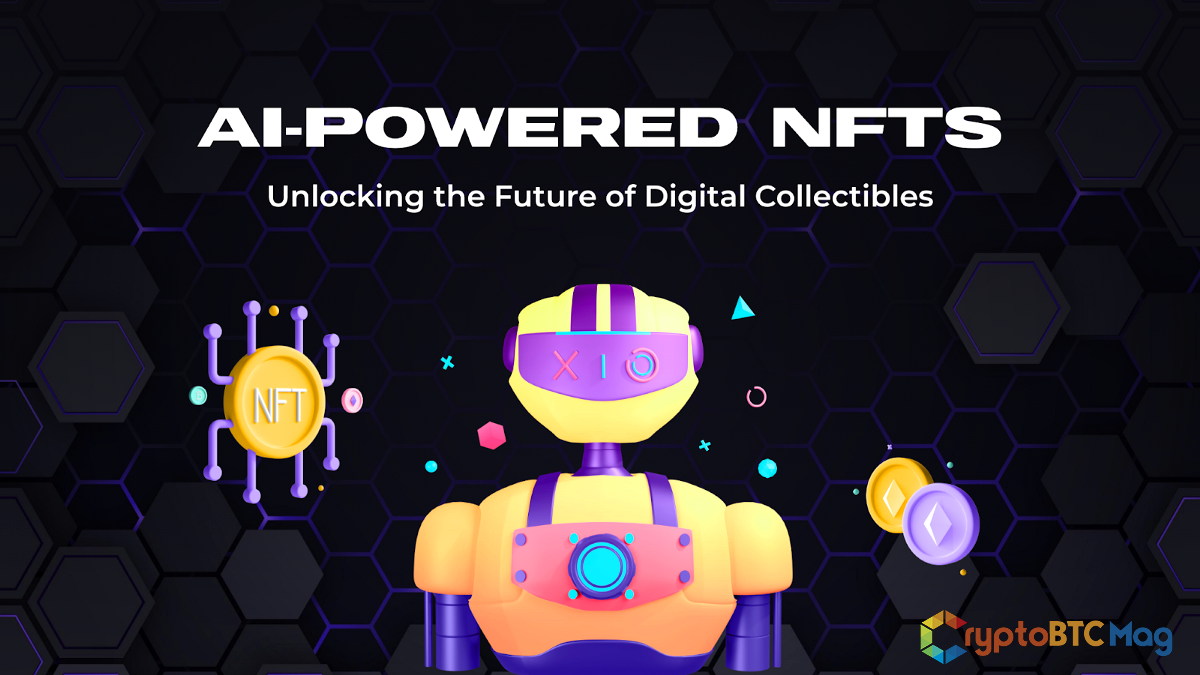
Top 10 Benefits of Block Chain Non-Technical
Top 10 Benefits of Block Chain Non-Technical? Blockchain is a revolutionary technology that has created a lot of buzz in recent years. It has taken over the world of finance, and its applications are gradually expanding to other industries. Many people believe that blockchain is all about cryptocurrencies, but that’s not entirely true. While cryptocurrencies are a significant application of blockchain technology, the benefits of blockchain go beyond digital currencies.
What is Blockchain?

Before we dive into the benefits of blockchain, let’s first define what blockchain is. Blockchain is a decentralized and distributed digital ledger that records transactions on multiple computers. It uses cryptographic techniques to ensure the integrity and security of the data. In simple terms, blockchain is a digital ledger that keeps a record of transactions in a secure and tamper-proof manner.
Benefit 1: Decentralization
Decentralization is a key feature of blockchain technology. It refers to the distribution of power and authority among multiple nodes or participants instead of a single central authority. In a decentralized system, every participant has an equal say in the decision-making process. This feature ensures that no single entity has complete control over the system, making it more transparent and resistant to corruption.
In the case of blockchain, decentralization is achieved through a network of nodes that validate and record transactions. Every node on the network has a copy of the blockchain, which is updated in real-time. Each node has the power to verify and approve transactions, making the system democratic and transparent.
Decentralization in blockchain also ensures that the data stored on the blockchain is immutable and cannot be altered or deleted. Since every node has a copy of the blockchain, it is virtually impossible to modify the data without the consensus of the network. This feature ensures that the data is accurate and trustworthy.
Decentralization also eliminates the need for intermediaries in the transaction process. In a traditional centralized system, intermediaries such as banks or financial institutions are required to verify and approve transactions. These intermediaries often charge high fees and can cause delays in the transaction process. With blockchain, the need for intermediaries is eliminated, making transactions faster and cheaper.
Overall, decentralization in blockchain ensures that the system is democratic, transparent, and resistant to corruption. It eliminates the need for intermediaries, making transactions faster and cheaper. The data stored on the blockchain is immutable and trustworthy, making it an attractive option for businesses and individuals alike.
Transparency is a key benefit of blockchain technology. It refers to the open and public nature of the blockchain network, which allows all participants to view and verify transactions. Transparency ensures that every transaction on the network is visible to all participants, making it more difficult for fraud or corruption to occur.
In a traditional centralized system, transactions are typically conducted behind closed doors, with little to no transparency. This lack of transparency can lead to mistrust and uncertainty among participants, as they are unable to verify the authenticity of transactions. With blockchain, all transactions are recorded on a public ledger, which can be viewed and verified by anyone on the network.
The transparency of blockchain is also important in ensuring the immutability of data. Since all transactions are recorded on a public ledger, any attempt to modify or tamper with the data will be immediately visible to all participants. This feature ensures that the data stored on the blockchain is accurate and trustworthy.
Transparency in blockchain also has important implications for businesses and organizations. By providing greater visibility into their operations, businesses can build trust with their customers and stakeholders. This can lead to increased customer loyalty and a better reputation for the business.
Overall, transparency in blockchain ensures that all transactions are visible and verifiable, making it more difficult for fraud or corruption to occur. It also ensures the immutability of data, making it more accurate and trustworthy. Transparency is an important benefit of blockchain that has the potential to revolutionize industries and transform the way we conduct transactions.
Benefit 3: Security

Security is one of the most important benefits of blockchain technology. Blockchain ensures security by using advanced cryptographic techniques that make it virtually impossible for data to be tampered with or hacked.
In a traditional centralized system, data is often vulnerable to hacking and other forms of cyber attacks. However, blockchain uses advanced encryption algorithms to secure data on the network. Each transaction on the blockchain is verified using a complex mathematical algorithm, which ensures that the transaction is legitimate and that the data cannot be modified or deleted.
Furthermore, blockchain uses a distributed ledger system, which means that data is stored on multiple nodes across the network. This makes it virtually impossible for hackers to attack the system, as they would need to gain control of a majority of the nodes on the network in order to alter the data. This feature ensures that the data stored on the blockchain is highly secure and resistant to cyber attacks.
Another important feature of blockchain security is the use of smart contracts. Smart contracts are self-executing contracts that automatically execute when certain conditions are met. They are programmed to only execute if certain criteria are met, which ensures that the transaction is legitimate and that the data is secure.
Overall, security is a key benefit of blockchain technology. It ensures that data is highly secure and resistant to cyber attacks, making it an attractive option for businesses and organizations that require a high level of security for their data. With its advanced cryptographic techniques, distributed ledger system, and use of smart contracts, blockchain is one of the most secure technologies available today
Benefit 4: Traceability
Traceability is an important benefit of blockchain technology. It refers to the ability of the blockchain network to track and record the movement of goods and services throughout the supply chain. With blockchain, every transaction is recorded on a public ledger, which can be viewed and verified by anyone on the network.
This feature allows businesses and organizations to easily track the movement of goods and services throughout the supply chain, from the point of origin to the final destination. This can help to ensure that products are authentic, and that they have not been tampered with or counterfeited.
In addition, blockchain can help to ensure that products are produced in an ethical and sustainable manner. By tracking the movement of goods and services throughout the supply chain, businesses can ensure that they are sourcing materials from reputable suppliers and that they are meeting ethical and sustainability standards.
The traceability feature of blockchain also has important implications for industries such as healthcare and food safety. With blockchain, every step in the supply chain can be tracked and recorded, from the production of raw materials to the final delivery of products to customers. This can help to ensure that products are safe and that they have been properly tested and verified.
Overall, traceability is an important benefit of blockchain technology that can help to ensure the authenticity, ethicality, and safety of products throughout the supply chain. By providing greater visibility into the movement of goods and services, blockchain can help to build trust among customers and stakeholders, while also promoting greater accountability and transparency in business operations.
Benefit 5: Efficiency
Efficiency is another key benefit of blockchain technology. The use of blockchain can help to streamline business processes and reduce the time and costs associated with traditional paper-based systems.
In a traditional system, many business processes are paper-based, which can be time-consuming and costly. With blockchain, transactions can be processed and recorded automatically, without the need for paper-based records or manual processes. This can help to reduce the time and costs associated with traditional systems, while also improving accuracy and reducing the risk of errors.
In addition, blockchain can help to eliminate the need for intermediaries in certain transactions. For example, in a traditional banking system, transactions often require the involvement of multiple intermediaries, such as banks, clearinghouses, and payment processors. With blockchain, transactions can be processed directly between parties, without the need for intermediaries. This can help to reduce the time and costs associated with traditional banking systems, while also increasing transparency and reducing the risk of fraud.
Another important feature of blockchain efficiency is its ability to automate business processes using smart contracts. Smart contracts are self-executing contracts that automatically execute when certain conditions are met. They are programmed to perform certain actions, such as releasing payments or triggering the next step in a supply chain process. This can help to streamline business processes, reduce the need for manual intervention, and improve overall efficiency.
Overall, efficiency is a key benefit of blockchain technology. By streamlining business processes, reducing the time and costs associated with traditional systems, and eliminating the need for intermediaries, blockchain can help to improve efficiency and productivity across a wide range of industries and applications.
Benefit 6: Cost Reduction
Another benefit of blockchain is its cost reduction potential. Since blockchain eliminates intermediaries, it reduces the cost of transactions. The transactions are processed in real-time, eliminating the need for lengthy settlement periods, which reduces the cost of transactions. The cost reduction potential of blockchain makes it an attractive option for businesses looking to reduce their operational costs.\
Read More: Top 5 Sandbox Games For PC In 2023
Benefit 7: No Intermediaries
Blockchain eliminates intermediaries, making it a more efficient and cost-effective technology. In traditional systems, intermediaries such as banks, brokers, and lawyers are involved in transactions, increasing the cost and time required to process the transaction. Blockchain eliminates intermediaries, reducing the cost and time required to process the transaction. Blockchain allows for peer-to-peer transactions, reducing the need for intermediaries and making the process faster and cheaper.
Benefit 8: Improved Data Quality
Blockchain ensures data integrity and improves data quality. The data stored on the blockchain is immutable, meaning it cannot be modified or deleted. This feature ensures that the data is accurate and trustworthy. Since blockchain is a decentralized system, it eliminates the need for a central authority to manage the data, reducing the chances of errors or mistakes.
Benefit 9: Accessibility
Blockchain is an accessible technology that can be used by anyone with an internet connection. The decentralized nature of blockchain makes it a borderless technology that can be used anywhere in the world. It is particularly useful for people who do not have access to traditional banking services. Blockchain allows people to transact without the need for a bank account, making it an accessible option for millions of people around the world.
Benefit 10: Innovation
Blockchain is a transformative technology that has the potential to revolutionize various industries. Its decentralized and secure nature makes it an attractive option for businesses looking to improve their operations. Blockchain has the potential to transform industries such as finance, healthcare, and logistics, among others. Its innovative potential makes it an exciting technology to watch out for in the coming years.
Conclusion
blockchain is a revolutionary technology that offers numerous benefits. Its decentralized and secure nature ensures that the data is trustworthy and accurate. Blockchain eliminates intermediaries, making it more efficient and cost-effective. The technology’s transparency and traceability features ensure that the data is accessible and trustworthy. As blockchain continues to evolve, it is expected to revolutionize various industries, making it an exciting technology to watch out for.
FAQs
Can blockchain be used for anything other than cryptocurrencies?
Yes, blockchain has numerous applications beyond cryptocurrencies. It can be used in supply chain management, healthcare, and finance, among other industries.
Is blockchain secure?
Yes, blockchain is a highly secure technology due to its cryptographic techniques and decentralized nature.
Does blockchain eliminate the need for intermediaries?
Yes, blockchain eliminates intermediaries, making transactions faster and cheaper.
Can anyone use blockchain?
Yes, anyone with an internet connection can use blockchain.
What is the potential of blockchain?
Blockchain has the potential to revolutionize various industries and transform the way we do business. Its innovative potential is immense and exciting to watch out for.






One Comment